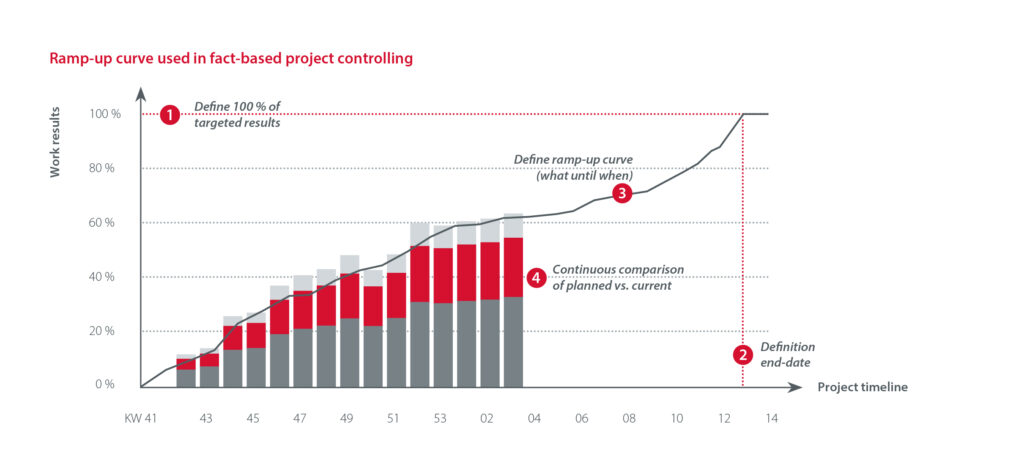Adherence to delivery dates as the primary control parameter
A fully coordinated schedule is the framework of a project and the common thread for project execution and control. Since cost and quality targets are at risk if deadlines are not met, this is our main focus. By combining processes and creating a pull-effect across interfaces, we ensure the necessary pressure to meet deadlines on all levels.
Focus on costs and quality
With the clear definition of deliverables and quality gates, the incremental results in the project are defined. Deviations from deadlines are therefore also an early indicator of compliance with costs and quality. In addition, cost compliance is monitored as part of the Earned-Value-Analysis (on-time completion of deliverables within the cost target).
Creating momentum with the pull principle
The secret recipe of the successful TARGUS approach to operational project management is quite simple: the focus is not on execution of work packages, but on achievement of goals. We use facts based on completion of deliverables to map the status for each individual project phase. An overall pull principle creates the necessary pressure to act and ensures the quality of results.
Fact-based status instead of activities
Far too often, large-scale projects are managed using activities rather than results. If a milestone is missed, a retrospective analysis is performed to determine why results were not achieved even though all activities were carried out. In contrast, results/goal-oriented management is based on clearly defined and scheduled deliverables. For this purpose, 100% of the internal and external deliverables are defined, their dependencies mapped and scheduled. This provides the basis for forward-looking control and enables transparent management of deviations throughout the project execution.

Project results
-
Results-oriented management focusing on “on-time delivery”
-
Transparency in every project phase
-
Early identification of deviations
-
On-schedule completion


